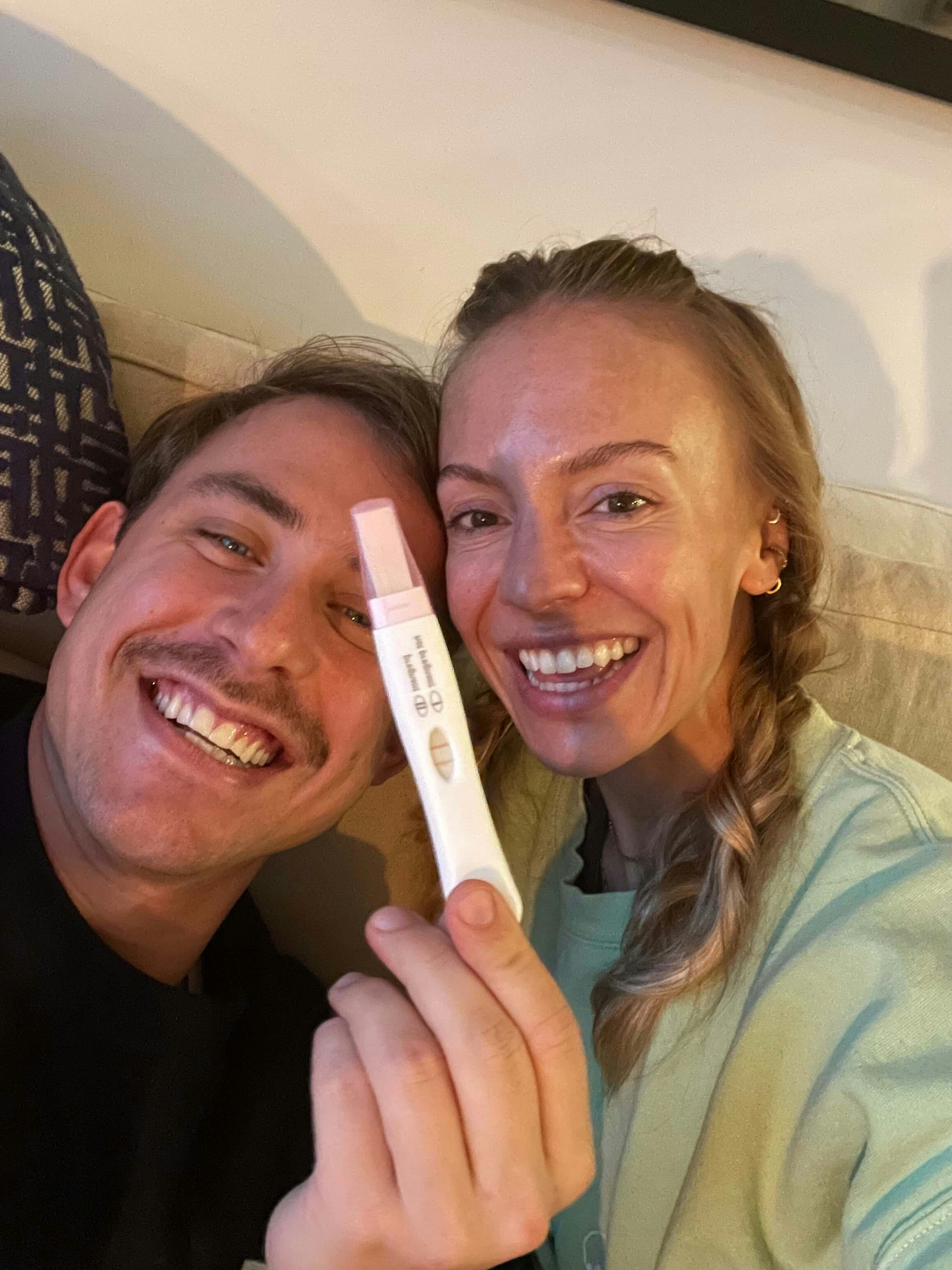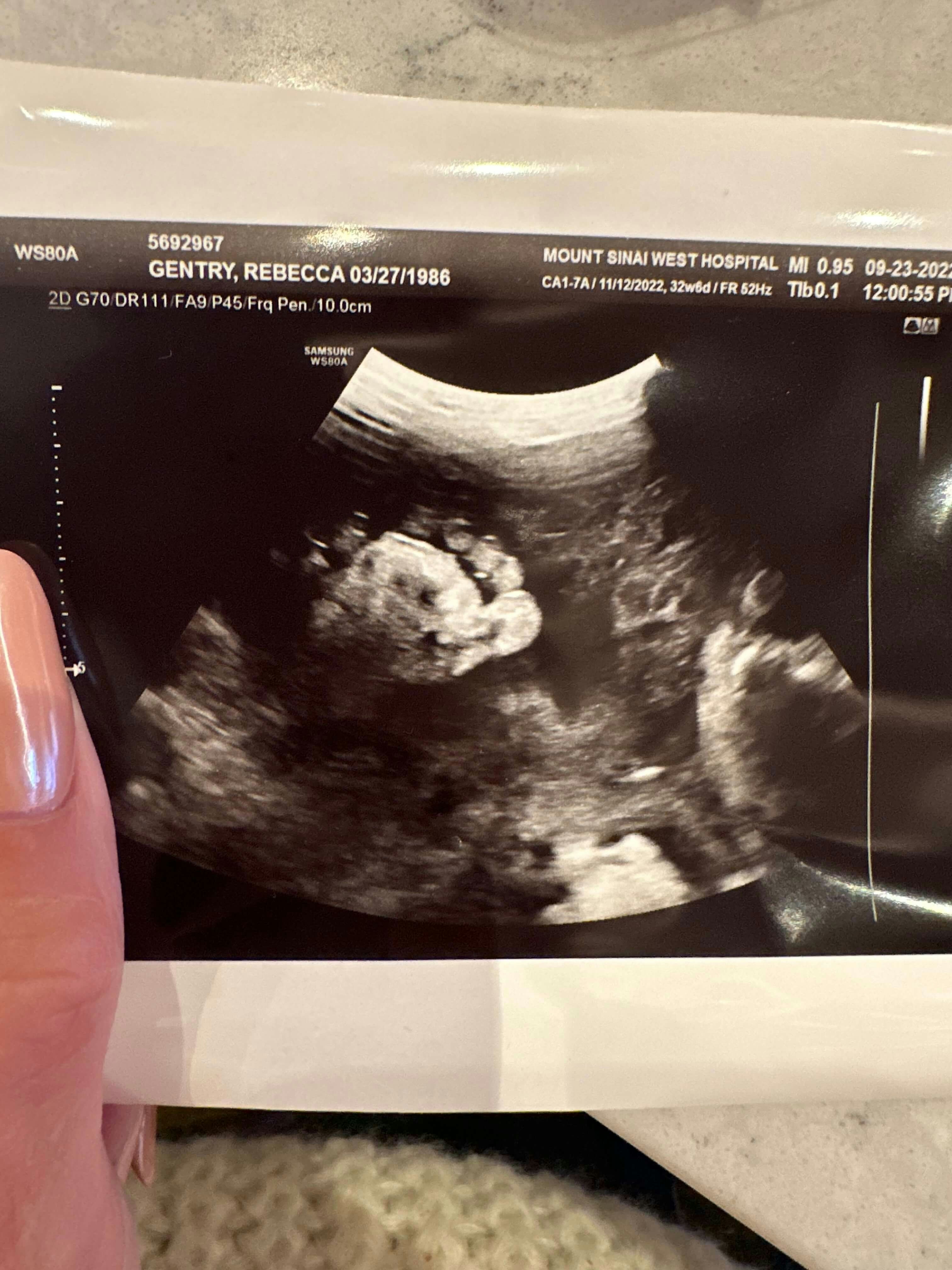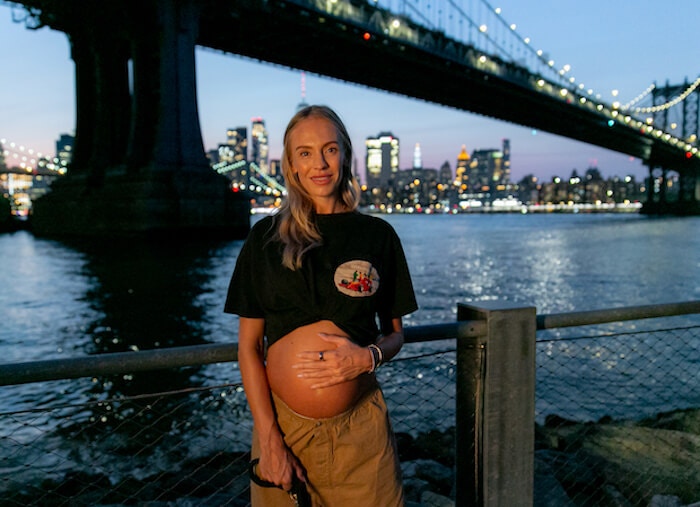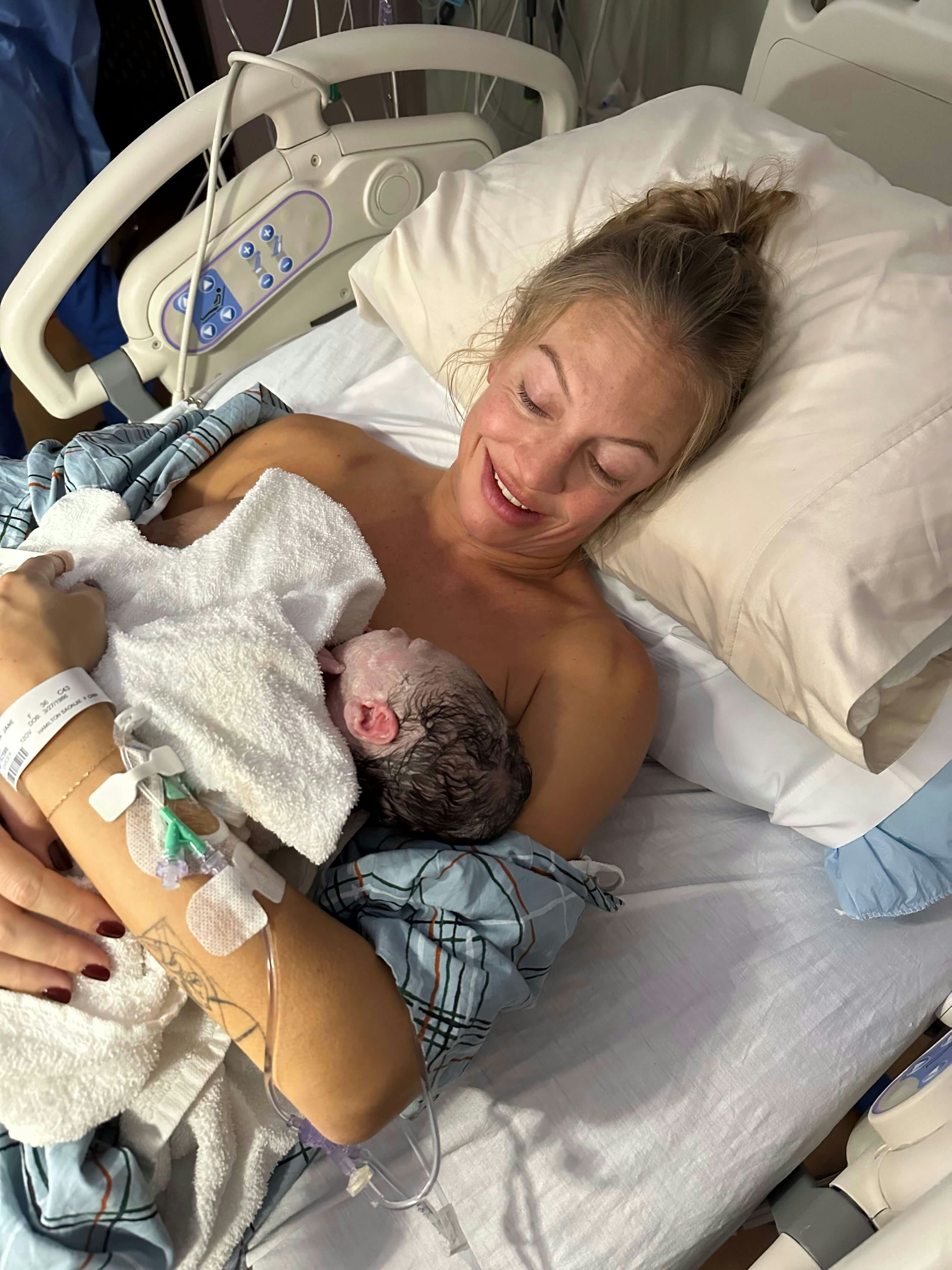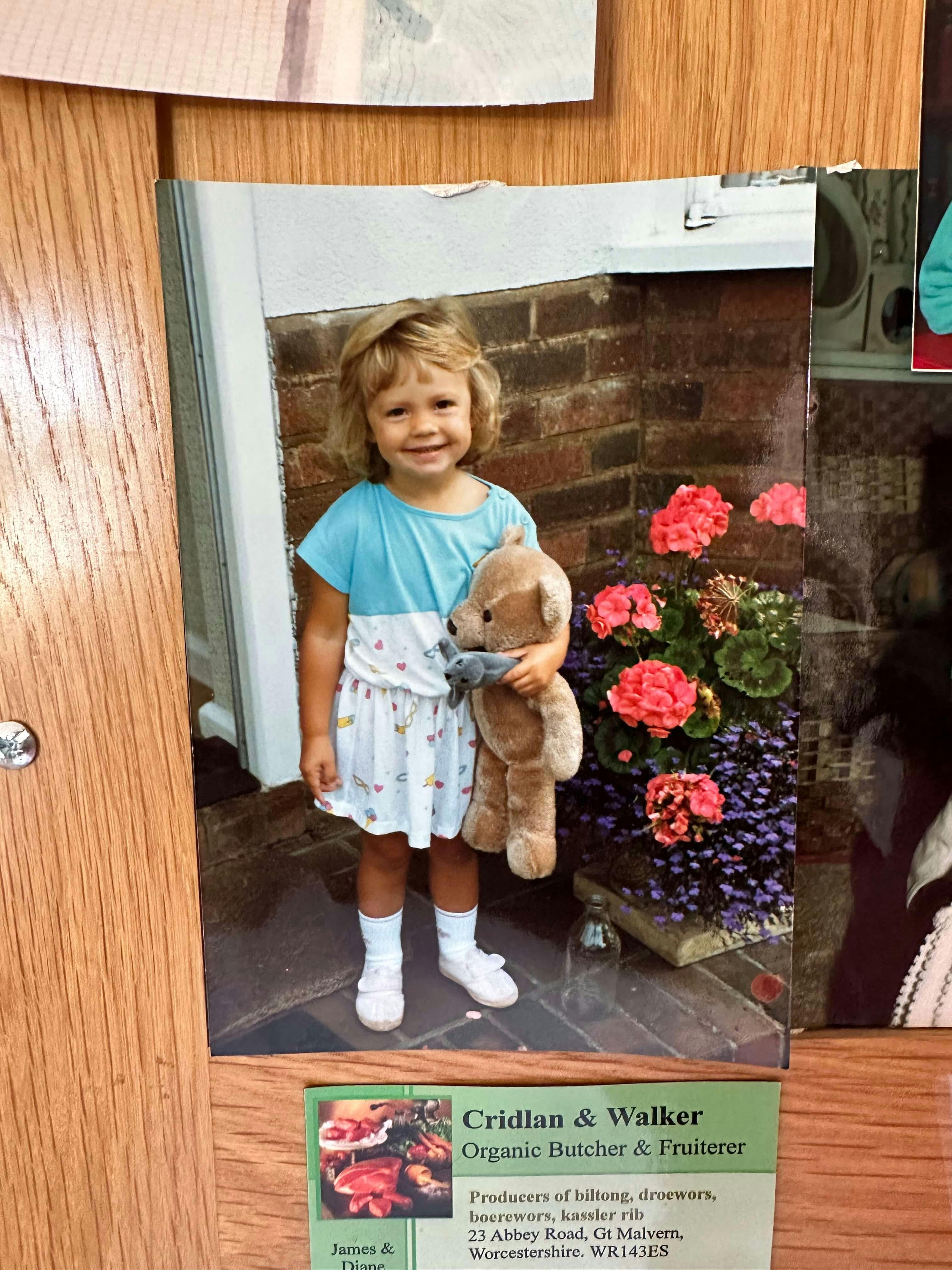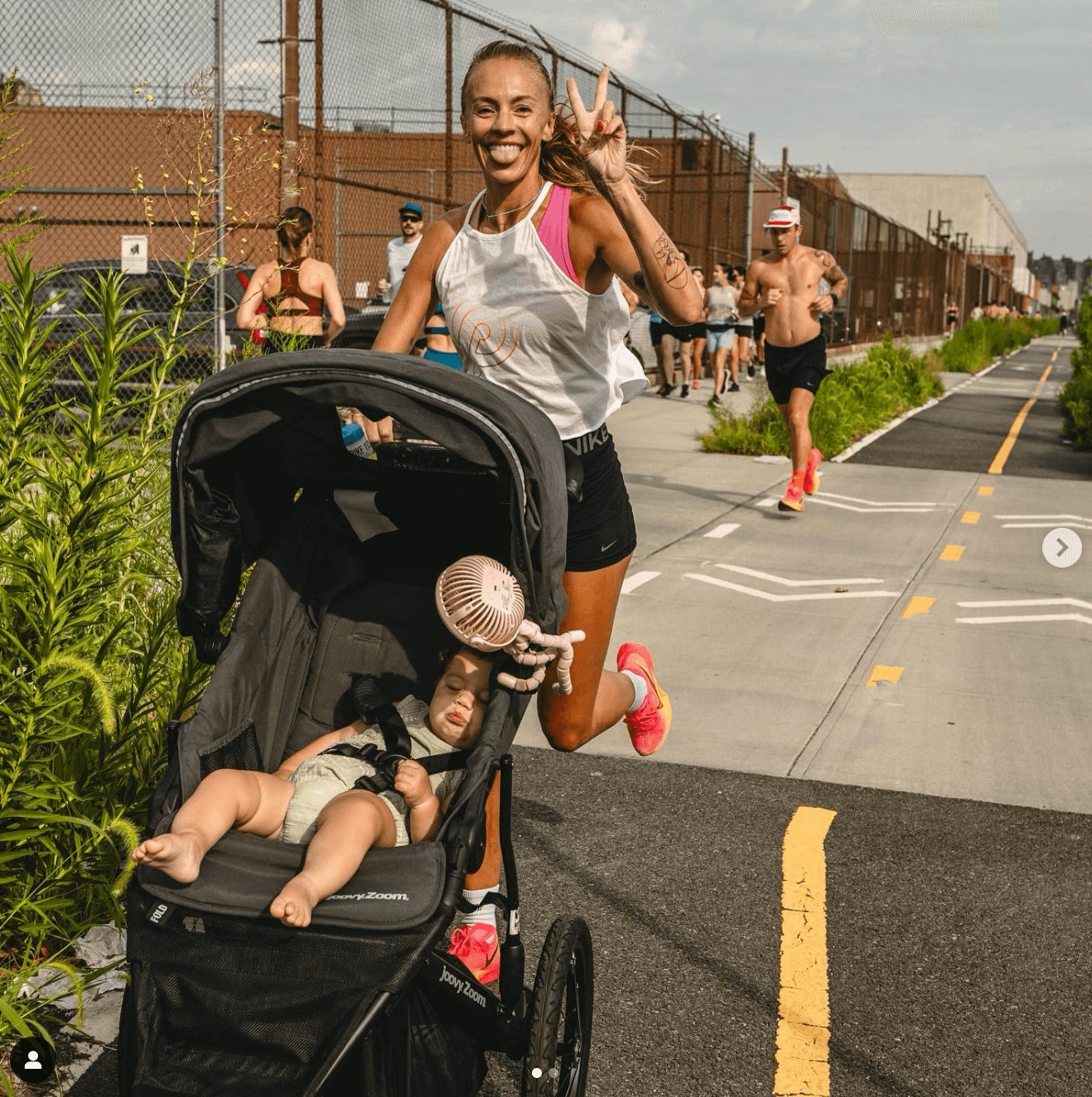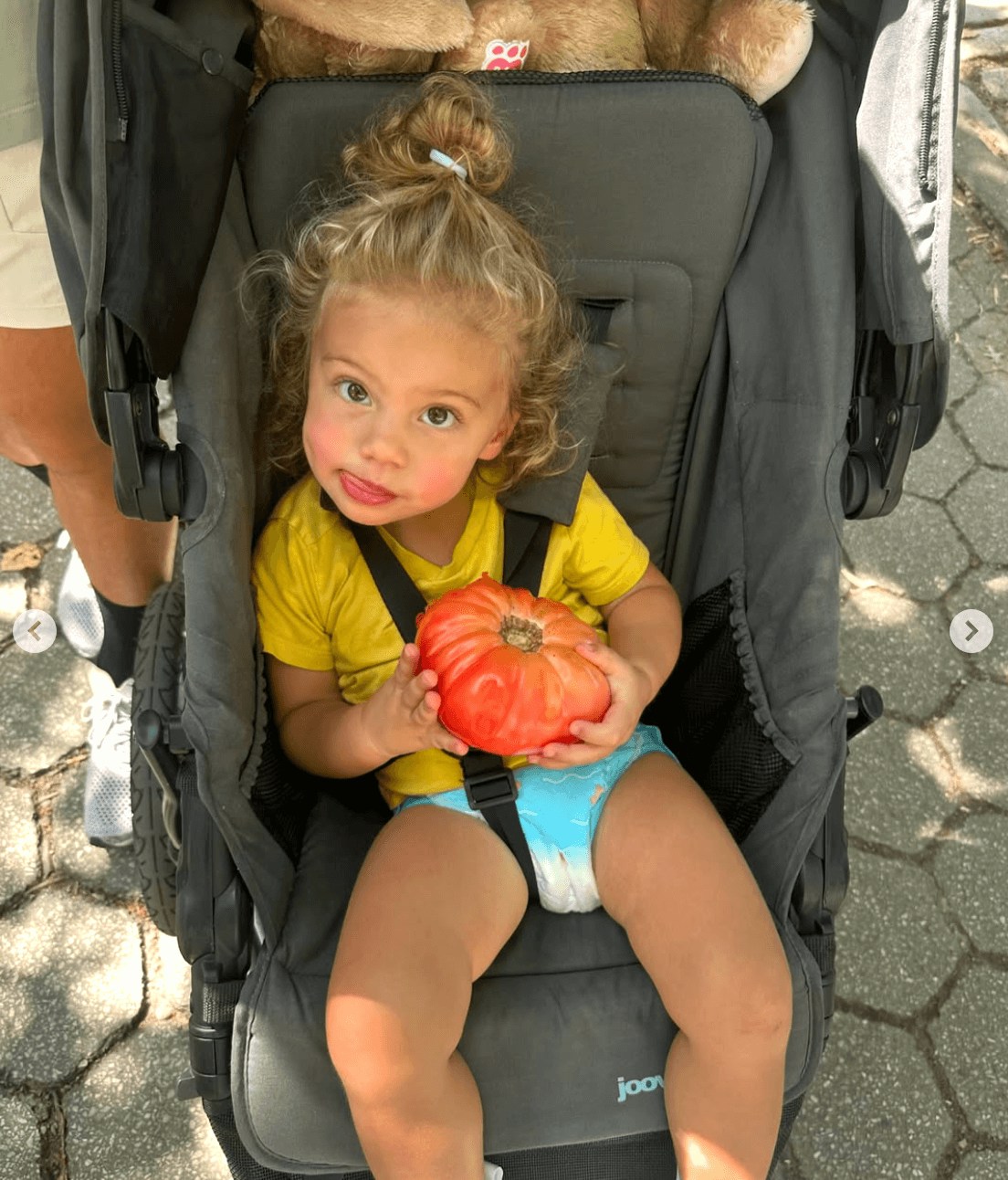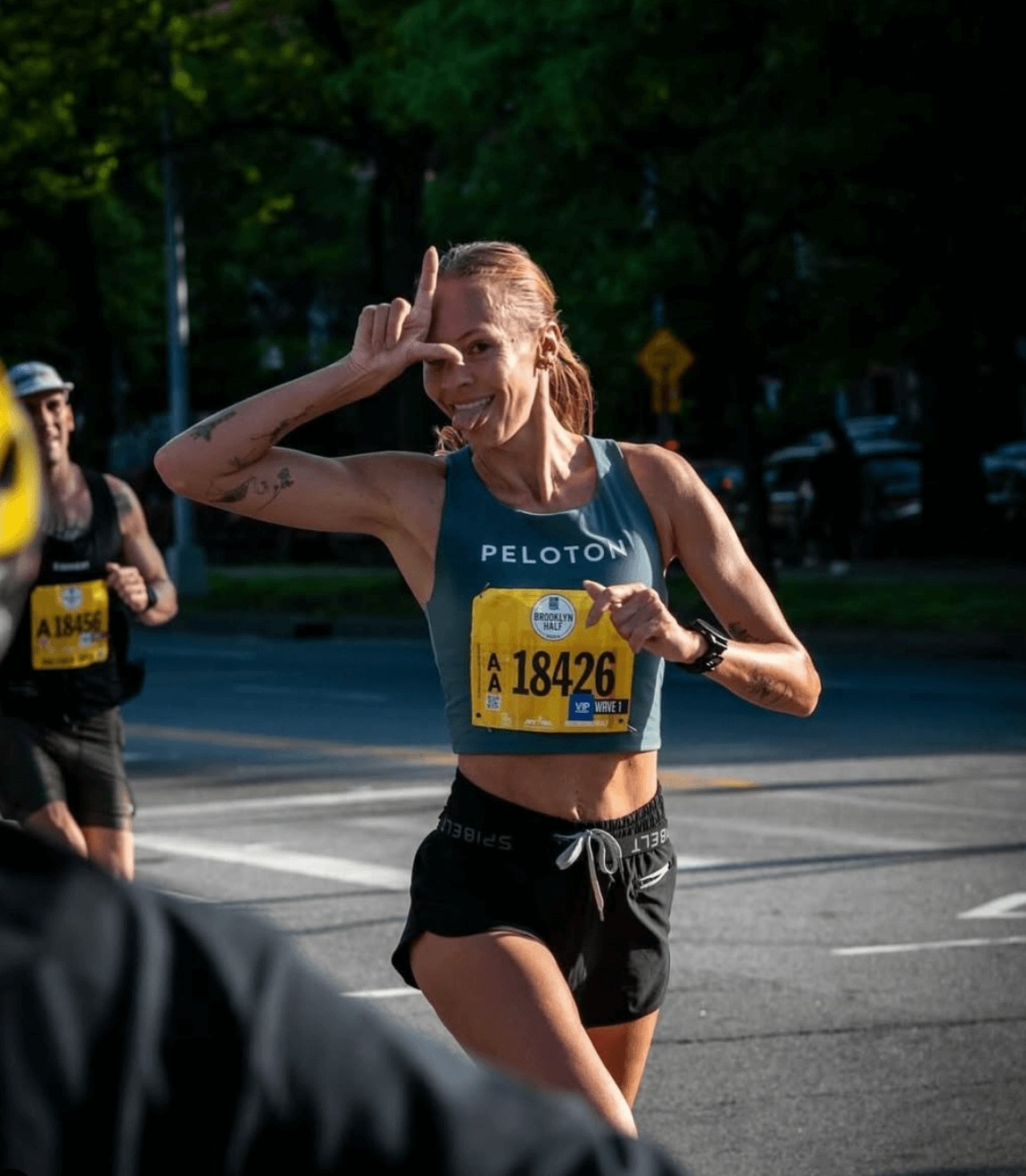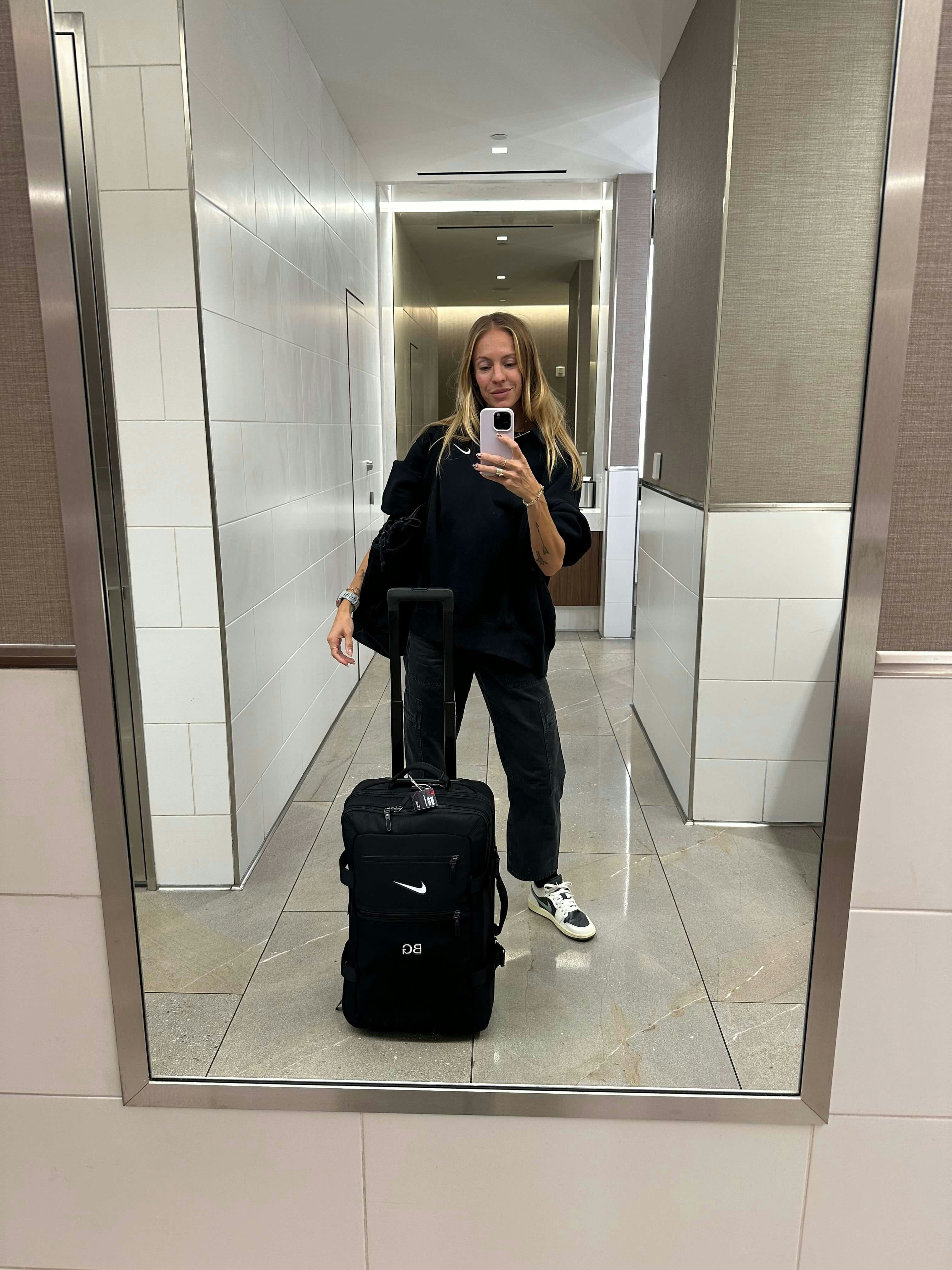
Getting Sticky With: Becs Gentry
Fifteen years ago, Becs Gentry had a marketing job in Brighton. She felt unfulfilled both personally and professionally. Runs to the sewage plant had become her daily meditation, a moment of clarity that would eventually become her conduit for connection—both with others and herself. A poignant conversation with her uncle became the catalyst for her “let’s give something else a go” moment. She decided to pivot careers and went back to school to study fitness, began working with Nike in London, then made the leap to NYC to join Peloton in 2018. Since then, she has finished as the first non-elite female in the 2019 TCS NYC Marathon, achieving a personal best of 2:32:01 at the 2021 GB Marathon Olympic Trials, and secured second place in The Great World Race.
Yet, what’s most compelling about Becs is her musings on the introspection and sacrifice required to balance the demands of being a working mom. Navigating the realities of age and its limitations, the ebb and flow of romantic relationships, and the delicate balance between parenthood and personal ambition, Becs is a testament to the power of self-reflection and the pursuit of personal fulfillment. In other words: she’s proof that moms run shit. Literally.
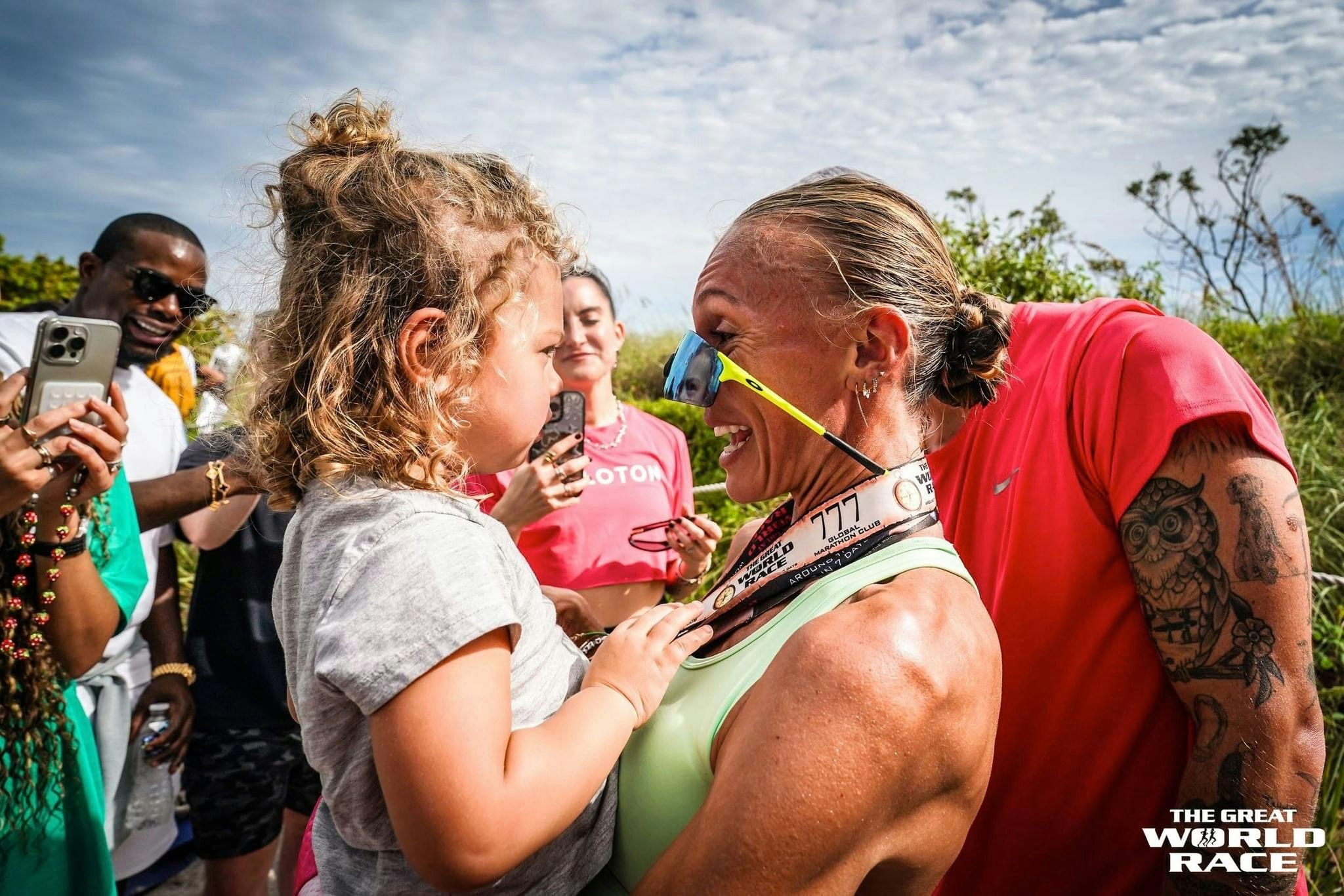
Hats off to working moms everywhere
I think hormonally, it was like having a baby again, like, "What the f*** is going on? Why am I crying every 5 seconds?" I couldn't tell a story without bursting into tears about the race. The idea of running the Great World Race came to me in 2023—seven marathons, seven days, seven continents—thanks to a friend running an almost identical race called The World Marathon Challenge. And we found out the other day that Hillary and I broke the world record. So, we're now world record holders for going around the world and starting seven marathons. We did it in six days and 2 hours. Two moms hold the world record for the fastest people to ever go around the world. And I’m not a professional athlete because I'm not a performance runner. If someone was being mean to me, they'd call me a fitness influencer. That is so offensive. I'm a fitness instructor, yes. I'm a coach, yes. But I'm a working mom in the end. That's the most important description for me—I have a full-time job.
No such thing as “being too late”
I began running 15 years ago when I was living in Brighton. I had a toxic partner and I had a marketing job that was great, but I was at the end of my time in that job; it wasn't serving me anymore and I wasn't serving it. And I used to go out for a run to clear my head. I'd run along the seafront and I’d use lamposts, landmarks, whatever, as markers. That was just my run—to the sewage plant and back. And it was mental clarity. It was my quiet time. From there, I did a 5K, then I did a half marathon, and as time rolled on, I ran a marathon.
When you have an eating disorder, you think no one can see it. You think you're so sneaky and no one sees you going to the bathroom straight after you eat. But my uncle was wondering why I was running 20 miles a day, and told me to channel that passion into a career. And he's this big brash Bostononian guy. He sat me down and was like, "What's going on? You have a passion for running cuz I've seen you every day going out for runs. You can do something with it." He's a hugely successful businessman. And hearing that from him was so pivotal because in my brain I was like, if this successful business person believes in me, I should probably listen and pull myself together.
I came home from that trip and I quit my job. I enrolled back into school, went to study business and personal training, and then a year later, I was a Nike running coach, Nike trainer, and living the life that I had always dreamt of in my weird world in London. Also broke up with that toxic boyfriend. That's where my passion for running stems from—it changed me. I do believe that I was put on this planet to help other people move their bodies in a way that's going to enable their change. It doesn't have to be running, but maybe running is the catalyst to them finding stretching or yoga or cycling or barre.
Birthdays = the cornerstone for contemplation
It felt surreal to do the biggest running event of my life the day before I turned 36, especially since I’m a huge Shalane Flanagan fan, and she won New York at 36. I always believed any big moment in my running career would happen between 35 and 37—and it did. At 35, I won the New York non-elite. I got divorced. I found my person and fell in love. I qualified for the Olympic trials, ran them, and achieved my PB, all in that window.
Everything escalated after the trials. The week after, I celebrated my birthday with family and Austin and it was just amazing to be home. But the athletics world doesn’t sleep during that time and I was getting inundated with calls from coaches, British Athletics, and the England Foundation asking if I’d run a 10K in Switzerland to possibly qualify for the Olympics. I was stunned. I thought, "Wait, what? I’m okay with my 2:32. I’m good. I don't think I can ever run faster.” And then within two weeks, I found myself sitting at my parents' kitchen in Worcester considering getting straight back into training to try and run the European Champs half marathon. And the athlete in me was like, "that would be really cool to go to the champs, to have a GB bib on, to have Gentry on it." That became my trajectory for my next two years.

"If someone was being mean to me, they'd call me a fitness influencer. That is so offensive. I'm a fitness instructor, yes. I'm a coach, yes. But I'm a working mom in the end. That's the most important description for me—I have a full-time job."
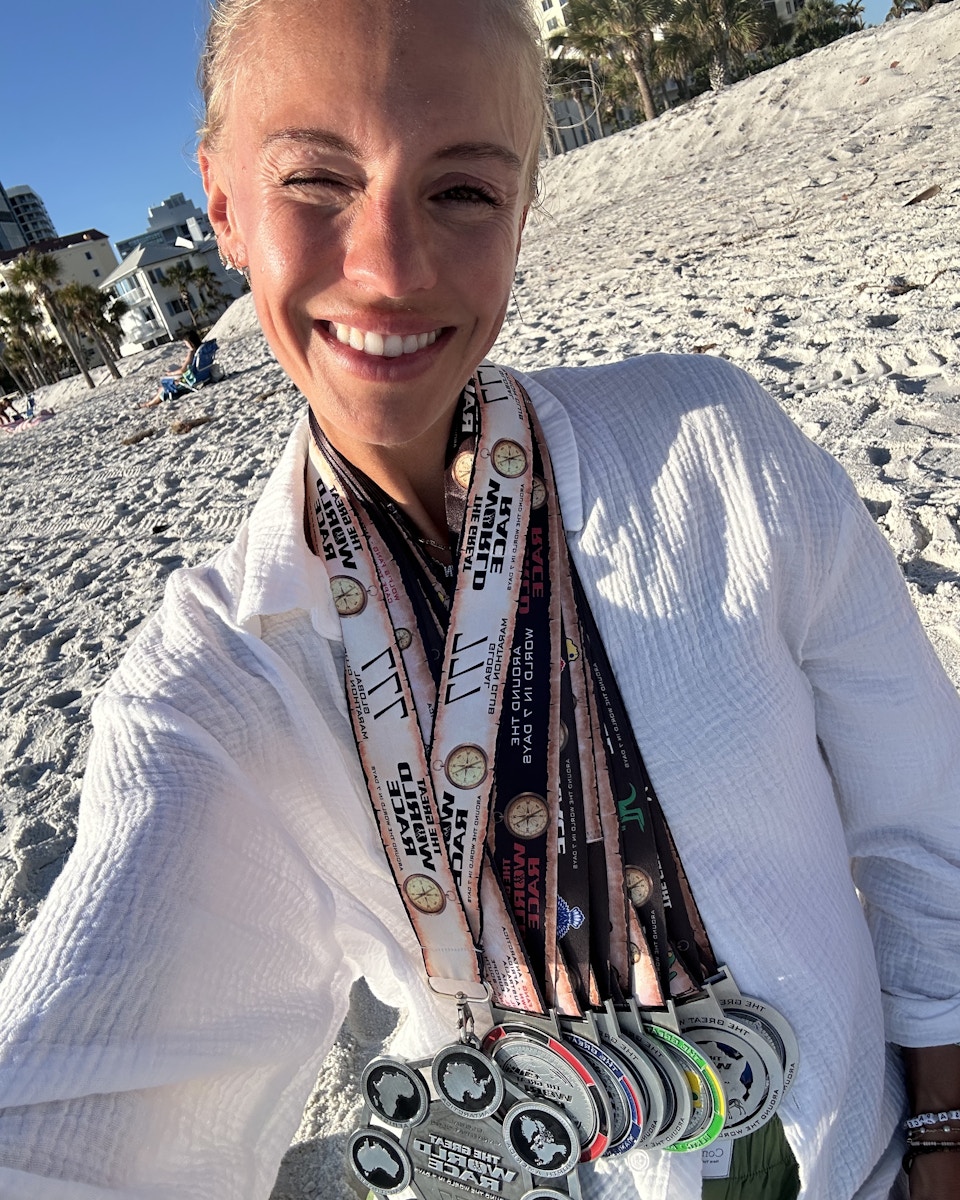

"Do I want to be trying to get pregnant at 40?"
I sat down and, thank the heavens it was my birthday, because I had to think, "If I qualify for the Olympics in this two-year gap, I’ll be 38, and by the time it’s all over, I’ll be 40." I looked at Austin, who had this half-concerned look on his face. He’s a ’92 baby, and I’m ’86, so I have a few years on him. He’s always wanted to be a dad, but I never considered being a parent until I met my person. This was still new to me.
And he said, "I hate that I have to ask this, but are we going to have kids?" That was it. I realized we needed to factor it in. It wasn’t black and white, but I knew my answer: "Yes." Then I thought, "Do I want to be trying to get pregnant at 40?" My fear was real. It sucks, but it’s nature—we’re the sex that grows and births the offspring. We decided to come home from England and kept talking about it until June. That’s when I said, "Okay, let me get checked." I wanted to see where I stood because fertility is unpredictable. Sometimes, they’ll tell you, "You’re loaded with eggs." Or they’ll say, "You’re low on eggs. It’s your age. It’s very normal to be on either end of the spectrum." I found out one side of my ovaries was just super lazy and there were not many eggs on that side. And with this knowledge, I knew I had to take things seriously.
And so long story short, over a margarita and some great Mexican food in Gowanus, Austin and I decided we were going to start trying and that if we get pregnant, that'll be the sign. We would let the universe guide us. Within four months, I got pregnant, but I had a miscarriage. Turns out, the pregnancy came from my lazy side. So actually would it have been a viable life? We don't know. We'll never know.
That miscarriage journey reset my mind in making the decision to have a baby. It made me realize I made the right decision. I can run forever—it doesn't matter about competition. I will run until my body tells me I can't. But I do have a window for having a child. My dad had me when he was 48 years old. And it bugged me that I had a granddad for a dad when I got older. And I thought, I don't want to be a grandma for a mom because I experienced that personally. By February the next year, Tallulah was conceived, and she arrived in October 2022.
A pause on sex and date nights
None of this would have been possible without Austin. We had an honest conversation beforehand about how intense the training would be. I told him, “I won’t be MIA as a parent, but there will be a lot of moments over the next nine months where I’m not as present as a mom or a partner. Things will suffer.” As parents, we know that once you have a baby, they become your whole world, and suddenly your partner, who was once your whole world, isn’t anymore. Your baby is your whole world. It doesn’t mean they’re unimportant but they now come in second.
We agreed to keep honest, open communication and remind ourselves that it wasn’t our relationship struggling, just the situation, and it was temporary. As the race got closer, though, there were days I couldn’t deal with anything. I’d be in bed by 8:00. Sex and date nights went out the window. Some nights, I’d just say, “Please tell me you still love me.” But through it all, Austin supported me completely and as a working mom, I did what I could.

"As parents, we know that once you have a baby, they become your whole world, and suddenly your partner, who was once your whole world, isn’t anymore. It doesn’t mean they’re unimportant but they now come in second. We agreed to keep honest, open communication and remind ourselves that it wasn’t our relationship struggling, just the situation, and it was temporary."

It’s more effective to just give yourself a minute
When Tallulah was a newborn, she was teeny tiny and calm, no screaming fits, just a placid little sack of potatoes. But as soon as she started moving, her true personality came out. She’s full of energy, absolutely wild. The tough moments, the arch-back crying, stiff-body tantrums, or crocodile rolling when you’re trying to get her in her PJs or sleep sack can feel overwhelming. I realized early on that as long as she’s in a safe space in her crib, I can step back, take a deep breath, and remember she’s not doing this on purpose. She has no idea she’s doing it. She’s just tired, hungry, or overstimulated. It’s the basics of human care. And you forget that because you're in a moment of, "my god, just get in your pajamas.”
But I’ve learned to step away from it. If she needs to sit for a minute to calm down, that’s okay. I’ll let her reset and then try again calmly instead of battling for an hour just to end up with milk being thrown everywhere because she’s overtired and hysterical. It’s like running for me. When something hurts I focus on what doesn’t hurt—it’s a distraction technique, flipping the narrative in my brain from “My knee hurts” to “Hey, look at my fingers.” I use the same approach as a parent. I’ll step out of the room or wave the white flag to Austin if he’s around.
It’s easy to feel like nothing is good enough, right? Don’t throw the pouch, don’t give your food to the dog. And then there are the moments where I’m like, “What did I do wrong today? I birthed you, I’m trying to love you, and you hate me” But I remind myself it’s not personal. It’s in every parenting book out there. Development leaps are real.
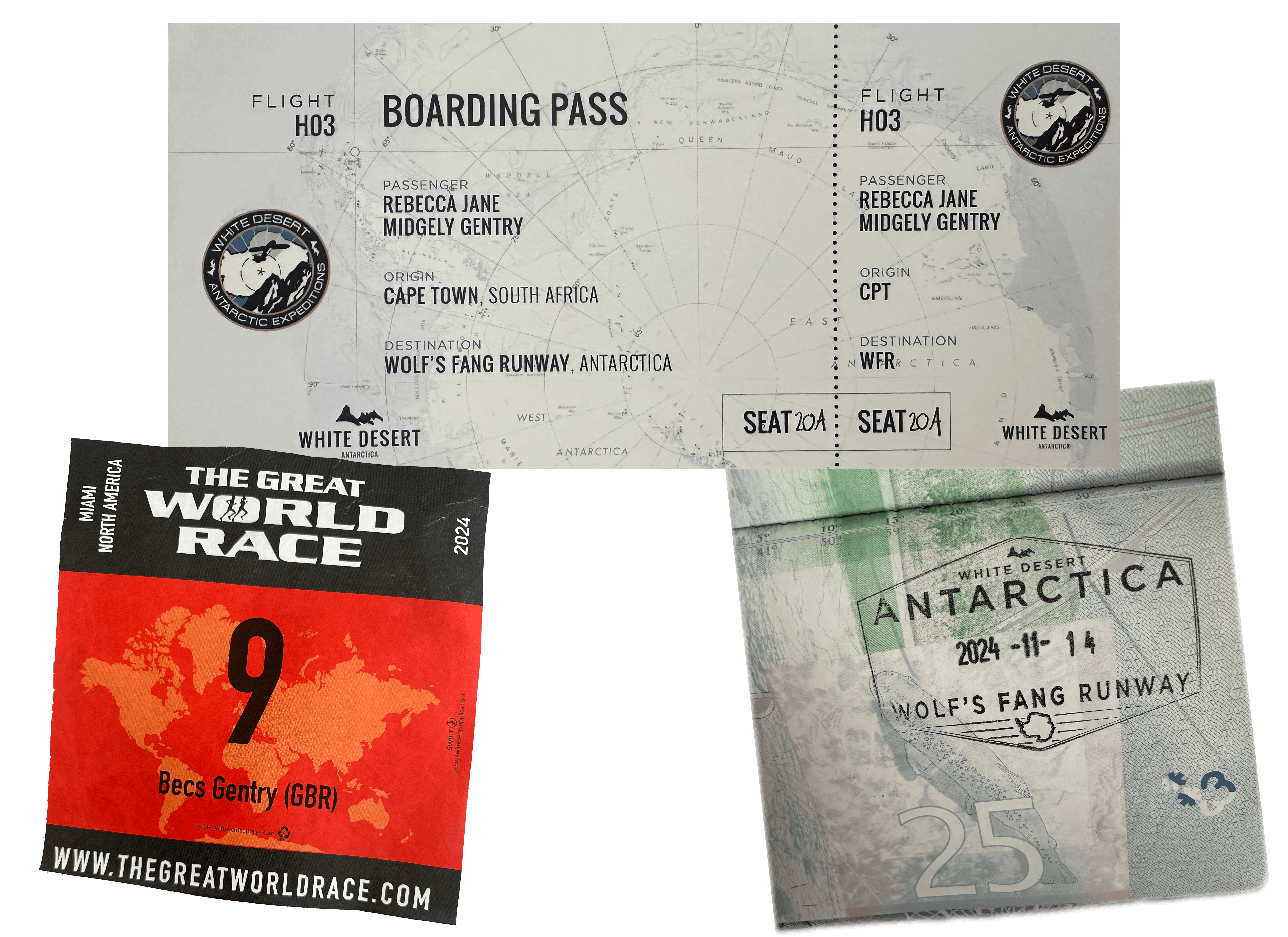
Yes, I get it, the whole geriatric womb thing
Tallulah came into the world three weeks early. She was 5 lb and 13 ounces when she was born really, really tiny. I had a short birth, but I had a very complicated birth. I had severe preeclampsia and hypertension. Our doctors said if I'd have gone to sleep that night, I probably wouldn't have woken up the next morning because my heart rate was so high. They were like, "You are so lucky you came in for this check because your partner could have ended up waking up next to a corpse tomorrow."
Just 24 hours before,at my midwife appointment, my blood pressure was textbook perfect. I felt fine. Makeup on, lunch plans set, didn’t even bring my wallet to what I thought was a routine 37-week checkup. Within hours, I was rushed into triage, hooked up to machines, I guess I was having a baby. And because I was deemed a "geriatric womb" (the most beautiful description I’ve ever had in my life), the risks were higher.
Preeclampsia is so common and unfortunately many women still die from it, especially in BIPOC communities. It’s tragic. The medication for it is awful. I was on magnesium for 36 hours after delivery because my heart rate wouldn’t stabilize. I couldn’t eat, had four needles in my arms, and couldn’t cradle Tallulah properly. The stress delayed my milk production and Tallulah developed mild jaundice, lost too much weight in the first 24 hours, and had to go under the light. On top of that, I wasn’t allowed to stand because they were worried I’d pass out. They asked if I could use the bedpan and I was like, “I am not pooping in a silver pot in a bed after giving birth.” The moment they removed the IVs and catheters I waddled to the bathroom in the classic hospital gown with my butt hanging out.
The anxiety of waiting and uncertainty
The stress didn’t end because Tallulah failed her hearing tests in both ears. For the first month of her life, we thought we’d have to learn sign language to communicate with her. We dove in, learning the basics, adjusting to what felt like a new reality. Six weeks later, we got some relief—it turned out her hearing was fine. But by then, I’d already moved into acceptance, thinking, “This is the hand I’ve been dealt. We move forward. What other choice is there?”
Pregnancy itself had been stressful, especially with the genetic testing process. That’s something people don’t talk about enough—the waiting, the uncertainty. At 16 weeks, we decided to do the genetic testing. The results took two weeks, so we were at 18 weeks. Then, because one of Tallulah’s results showed a possible severe gene defect, Austin had to be tested. Another two weeks. I spent those weeks spiraling, wondering, “What kind of stress is all of this putting on my baby?” I completely understand why some parents opt out of testing—the emotional toll is enormous.
And being labeled a “geriatric pregnancy” didn’t help. Every test was pushed on me because I was so old (their words, not mine). Thankfully, I had a midwife, and she was incredible—a true advocate. In the UK, midwives are more common, and I loved having her on my side. Even in the hospital, when the doctors suggested interventions like magnesium and Pitocin, she stood her ground for what I wanted.
Pitocin was the one thing I’d said I didn’t want in my birth plan. But at 37 weeks, with Tallulah in distress, my midwife sat me down, apologized, and explained it was the safest option to deliver the baby and keep us alive. At that moment, the birth plan went out the window. I trusted her because she took a holistic approach to my care, not just during delivery but also in helping me recover afterward.
Once Tallulah finally passed her hearing test, I felt like I could breathe again. Around four weeks postpartum, my midwife signed me off to exercise. She understood my background in movement and trusted me to listen to my body. I’ll never forget that first run at four and a half weeks postpartum. I felt unstoppable, thinking, “I’m amazing.” And for the first time in a while, I really believed it.
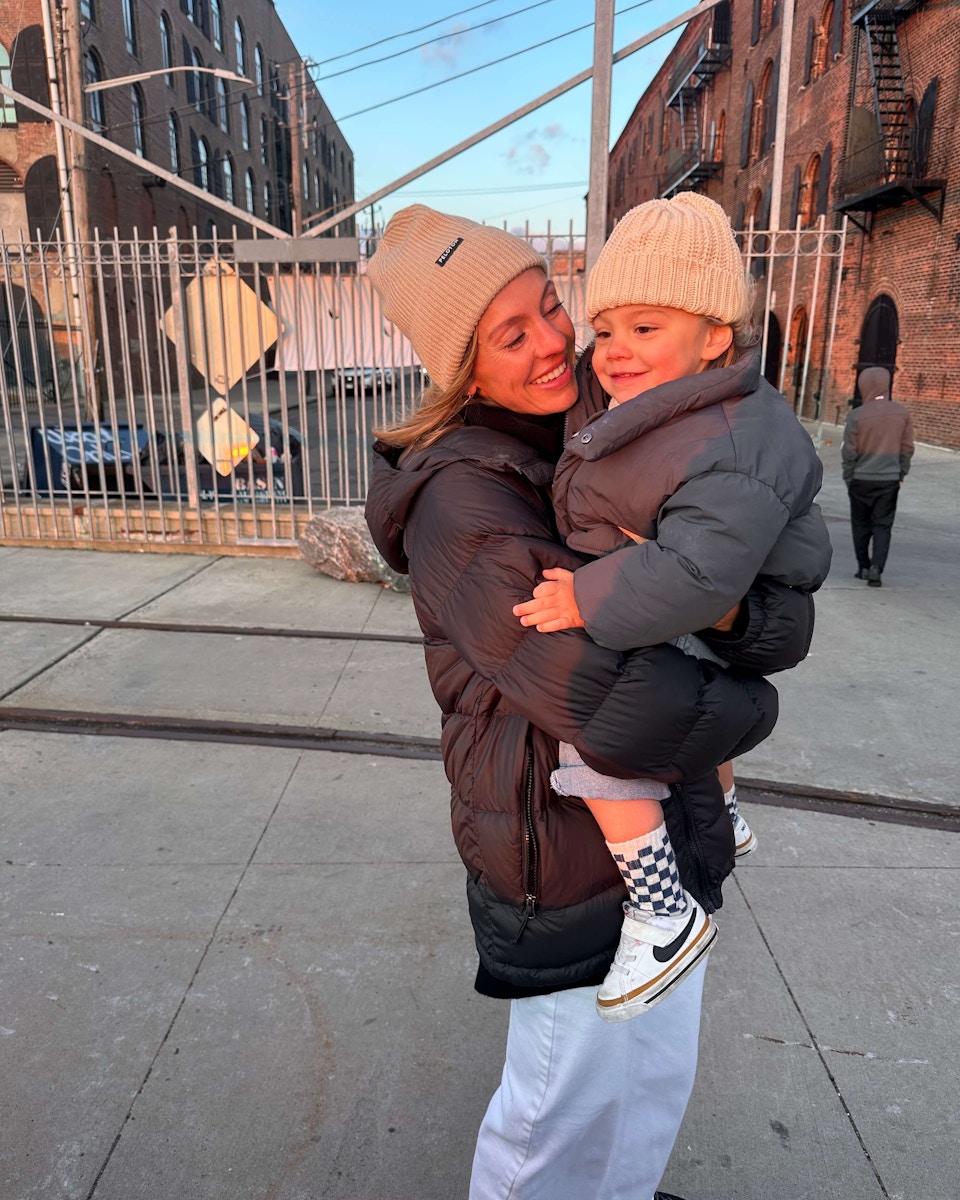
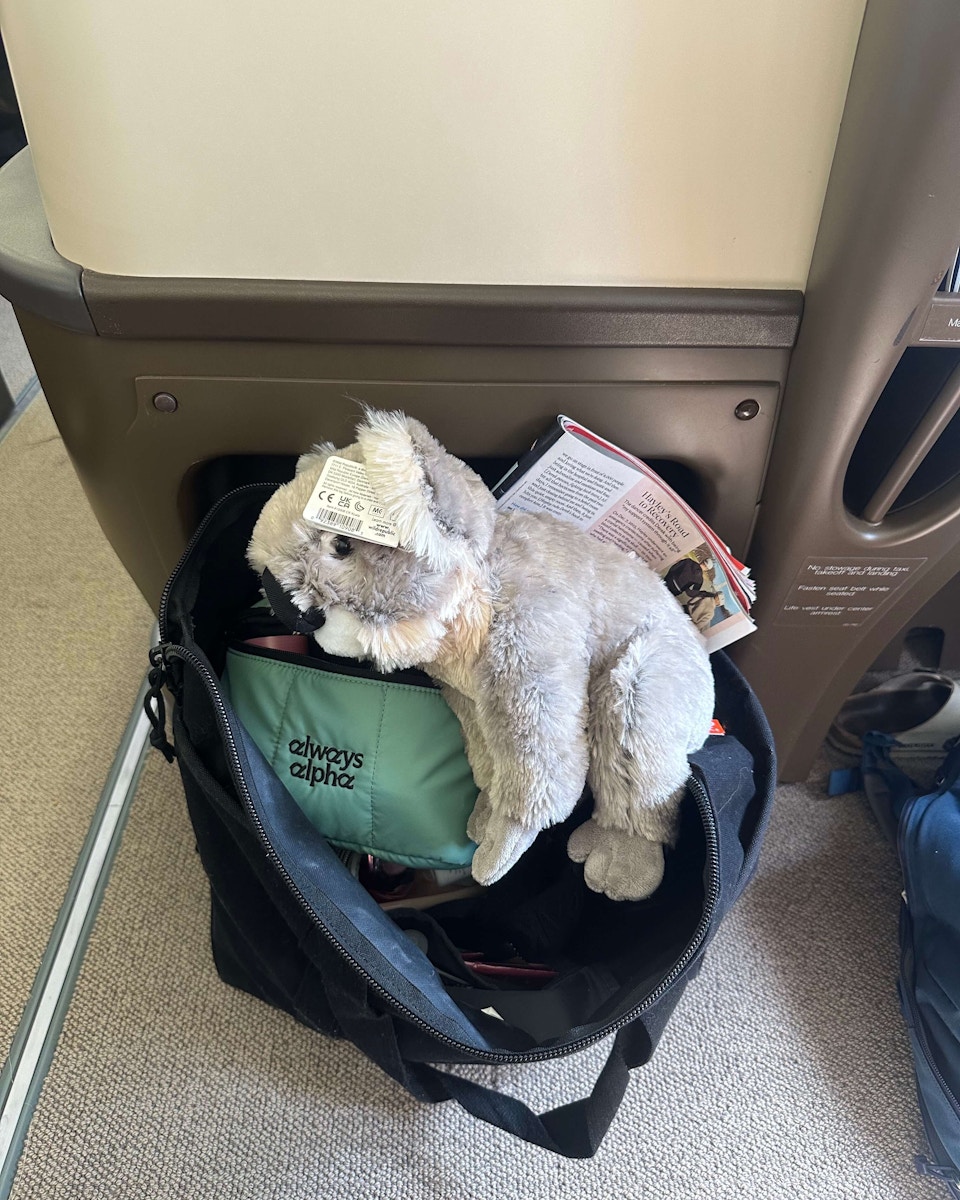
The great parenting perspective shift
I’ll never forget my first postpartum run. I was jogging down Flushing, and I’m thinking, “Look at me, I haven’t lost any fitness!” A minute later, I was leaning against a wall, bright red, convinced I was about to pass out. That humbled me very fast. It felt like I had run a marathon. But I was still so proud of myself. It felt like a fresh start, an exciting opportunity to reset and build from where I was.
Having a newborn, there was no routine to rely on. I couldn’t say, “Okay, Monday, I’ll do this.” Instead, I’d squeeze in movement whenever I could—maybe a walk-jog on the treadmill or a stroll outside with the dogs. But honestly, most of the time, I was napping when Tallulah napped. And running with all that milk in your boobs is not comfortable.
When you're dealing with something like the possibility that your child might not hear, you realize what matters and what doesn’t. You're like, am I actually that worried about what that stranger said to me on Instagram? No. Do I actually even care about Instagram? No. It puts everything into perspective. For me, that shift extended to work. Before Tallulah, there was always some performative pressure in my job and on social media. Now, I simply don’t have the time or energy for that. Some days, I don’t post anything because I’m with my family—and that used to stress me out. I’d worry about losing followers or brand deals. Now, I only work with brands that truly understand me and my priorities. If family life gets in the way of a deadline, no matter what you’ve paid me, you’ll get an email explaining the situation, but Instagram posts will always come second to my child.
“Not in a bad way, but it's honest.”
Motherhood changes everything, down to the way you dress or style your hair. You’re like, “Wow are people judging me because I’m a mom? Should I wear this? Does it look like something a mom should wear?” It’s a constant dialogue. But at some point, you realize it doesn’t matter what anyone else thinks. I'm normally in sweats and no makeup and my hair's not even clean. So, if I feel good when I'm dressed up in my clothing, I don't actually care what other people think anymore. And that's been nice—to confidently say “this is my style." And I've actually never felt more comfortable in my body than I have in the past two years; in my personality and in my style. I feel like I found who I am and I like her.
Mentally, I sort of fizzled a little bit over the two years. Not in a bad way, but it's honest. My baby is everything. But being a parent and having a full-time job, especially one that requires me to workout on camera, is draining. And I found that when I had a conversation with myself, I was empty. And doing this race has refilled my cup. It sparked my personal fire. And I can already see in the two weeks of being back, I'm so much more ready to give to other people, including my daughter or my partner, that I'm like, "Okay, this person, she's cool and I'm really happy with her." And if other people aren't, f*** them. They can go and find other people in their world because my little nucleus here, we're really happy and we're doing stuff.
